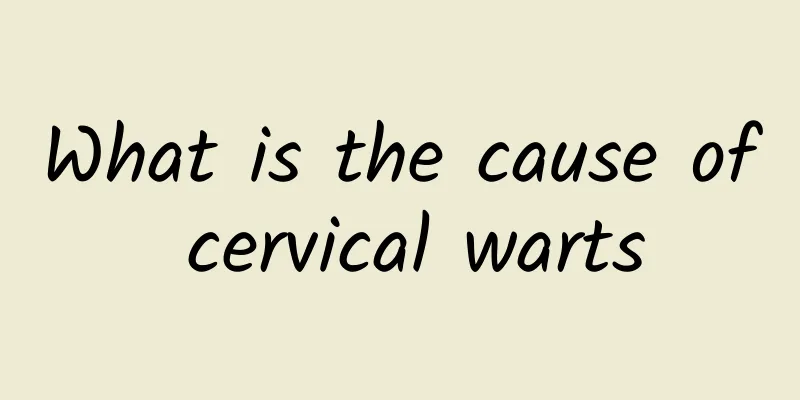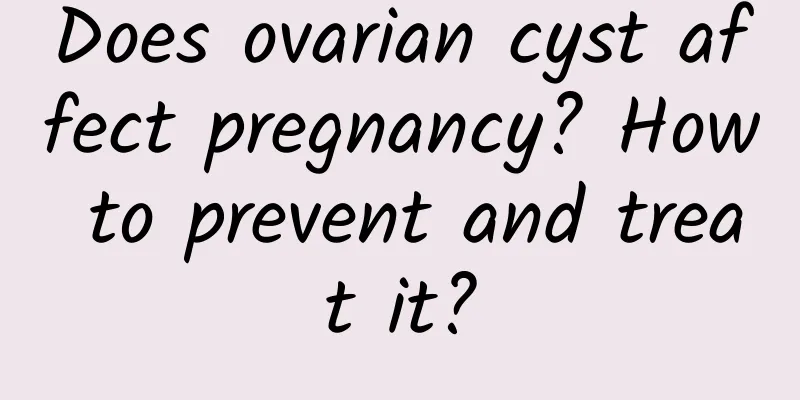How to deal with irregular menstruation in women? What are the causes of irregular menstruation after curettage?

|
Normal menstruation is an important sign of the health of mature women. Many female friends will experience irregular menstruation. There are many reasons for irregular menstruation. So what is the cause of irregular menstruation after curettage? How to treat it? Doctors say: It is common for women to miss their periods after curettage. You should go to the hospital for a checkup in time. Here are some specific tips for you: 1. The menstruation of women is the result of the interaction between the cerebral cortex, hypothalamus, pituitary gland, ovary and uterus, and is regulated by neuroendocrine. When people are in situations of excessive tension, fear, sadness, excessive fatigue, or surgery, the neuroendocrine system can inhibit the functions of the hypothalamus, pituitary gland, ovary, and uterus, thus causing menstrual disorders. 2. After curettage, endocrine changes occur, especially the sudden drop in chorionic gonadotropin levels, which makes the ovaries unable to respond normally to the gonadotropin from the anterior pituitary gland, causing amenorrhea. 3. During the painless curettage operation, the basal layer of the endometrium is damaged more, and the functional layer of the endometrium is damaged. The endometrium cannot regenerate, which causes the patient to have long-term amenorrhea. 4. Performing curettage multiple times in a short period of time will seriously damage the basal layer of the endometrium, causing irregular menstruation and other gynecological diseases. 5. Endometritis after curettage can cause adhesions in the uterine cavity due to inflammation, which can also lead to scanty menstruation or amenorrhea. Most of these patients have fever, lower abdominal pain and other accompanying symptoms after surgery. In fact, for most female patients, irregular menstruation after curettage is very common. Some will return to normal after a period of time, while others need treatment. So how should it be treated? 1. You may have slight lower abdominal discomfort, pain or a small amount of vaginal bleeding on the day after curettage. If the abdominal pain is severe or the vaginal bleeding is heavy or lasts for a long time, you should seek medical attention in time; 2. Within 2 weeks after surgery, you should rest in bed appropriately, eat more nutritious food, and avoid heavy physical labor; 3. Pay attention to the cleanliness of the perineum. Do not take a bath or have sexual intercourse when vaginal bleeding has not stopped. 4. Pay attention to contraception to avoid pregnancy again. |
>>: Does irregular menstruation affect pregnancy? What are the causes of irregular menstruation?
Recommend
Five-minute effective method to induce menstruation
There is no method to hasten menstruation in five...
Pork calories comparison! Which one is the fattest? Eat this way to avoid landmines...
Do you particularly like bacon when eating hotpot...
How much does endometrial surgery cost?
Many people suffer from thick endometrium. This d...
The three major causes of cervical hypertrophy
Why do people continue to suffer from cervical hy...
Drink lotus leaf oolong tea for hyperlipidemia
Older people are most afraid of the three high pr...
A brief introduction to the four major hazards of chronic cervicitis
For adult women, basically there will be some sym...
What to do if the vaginal flora is imbalanced
What to do if vaginitis causes dysbacteriosis? Va...
How much HCG should be taken to rule out ectopic pregnancy?
If HCG is greater than 15000IU/L, ectopic pregnan...
What should women with cervical erosion and infertility pay attention to? Women with cervical erosion should pay attention to 4 things
What should I pay attention to when I have cervic...
What are the self-treatment methods for cervicitis?
What are the self-treatment methods for cerviciti...
What are the early symptoms of left ovarian cyst pain?
Ovarian cysts have no obvious clinical manifestat...
Patients with cervical erosion should understand its symptoms in advance
Cervical erosion is common among married women, a...
What are the causes of vulvar itching?
What are the causes of vulvar itching? Vulvar itc...
Auxiliary examination of cervical precancerous lesions
The appearance of cervical precancerous lesions h...
Can I have intravenous infusion when menopausal syndrome occurs?
Generally, intravenous infusion is not required w...









